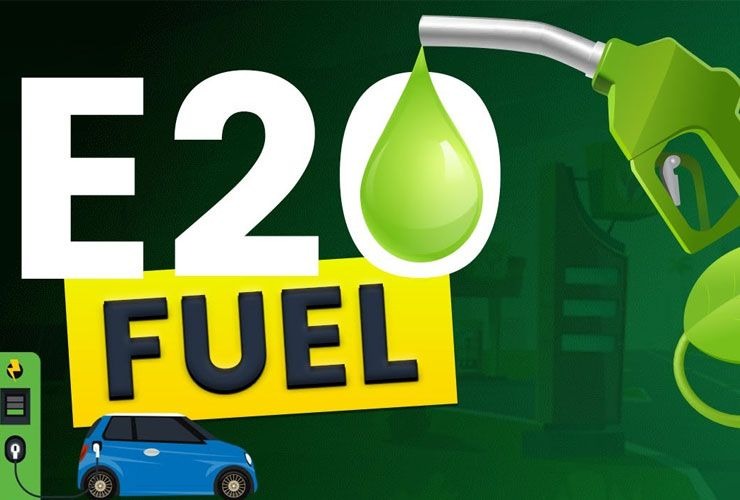
Follow WOWNEWS 24x7 on:

India’s automotive industry stands at a crucial juncture as the government pivots towards cleaner fuel options as part of its ambitious ethanol blending targets. The country is currently implementing E20 fuel—petrol blended with 20% ethanol—nationwide, with talks underway about moving to E27 fuel containing 27% ethanol. While the government pushes ahead with this green energy transition, India's auto lobby group cautions that no final decision has been taken yet regarding E27. This newsletter provides a comprehensive overview of the ongoing situation, industry insights, concerns, and next steps for India’s fuel future.
Key Insights From India’s Auto Lobby On Ethanol Fuel Transition
No Final Call Yet On E27 Fuel Adoption
Industry stakeholders confirm that consultations are ongoing regarding the proposed move to E27 fuel from the current E20 blend.
Automakers and government bodies are assessing the technical, operational, and consumer impact before finalizing standards or timelines for E27 implementation.
The Bureau of Indian Standards (BIS) and Ministry of Road Transport and Highways (MoRTH) are leading norm formulation and tendering processes, expected to conclude in the near future.
Fuel Efficiency Impact On Older Vehicles Is Limited
Studies referenced by the auto lobby indicate a maximum 6% drop in fuel efficiency for older vehicles using E20 fuel compared to conventional petrol.
The slight decline is attributed to ethanol’s lower calorific value—about 30-35% less energy per volume compared to petrol—resulting in marginally increased fuel consumption.
Automotive Research Association of India (ARAI) studies in 2016 and 2021 confirm that E20 fuel poses no significant harm or breakdown risk to vehicles running on it.
Newer vehicles designed post-2023 are factory-tuned for E20 compatibility and show minimal to no fuel efficiency losses.
Shift Towards Offering Only E20 Fuel by Automakers
Over the last 6-8 months, automakers have collectively moved away from supporting multiple petrol grades, instead standardizing on E20 fuel models.
This approach simplifies production lines, regulatory compliance, and marketing while aligning with the government’s clean energy objectives.
Despite consumer concerns, automakers assure warranty honor and insurance coverage remain unaffected for E20-compatible vehicles.
Challenges Related To Older Vehicle Compatibility
Older vehicles, particularly BS3 and BS4 emission standard models, might require minor upgrades such as replacement of fuel system seals or pumps to ensure optimal performance with ethanol blends.
The replacement parts are relatively inexpensive, and failures linked to ethanol usage remain isolated and manageable.
Continuous public education is necessary to mitigate misinformation and anxiety among vehicle owners, especially for those unfamiliar with ethanol-blended fuels.
Broader Environmental And Economic Importance Of Ethanol Blends
India’s ethanol blending program aims to reduce dependence on imported crude oil, save foreign exchange (estimated savings over Rs 43,000 crore), and promote farmer incomes (estimated gain of Rs 40,000 crore annually).
E20 rollout is integral to Prime Minister Narendra Modi’s vision of promoting cleaner, renewable fuels supporting India’s energy security and climate commitments.
Future adoption of higher ethanol blends like E27 could further deepen these economic and environmental benefits if handled with adequate vehicle readiness and fuel infrastructure.
What To Expect Next In The Fuel Landscape
The final decision on E27 fuel introduction remains pending but is expected soon once stakeholder consultations conclude and BIS formalizes standards. Meanwhile, consumers should prepare for E20 as the new norm at most fuel stations across India with strong governmental assurance about vehicle safety and warranty coverage.
Automakers are gradually refreshing fleets with E20-ready engines and components, ensuring compatibility and minimal performance drops for customers. However, the transition poses questions about older vehicle readiness and user adaptation, which will require ongoing support from manufacturers and government bodies.
Conclusion: Balancing Clean Energy Ambitions With Practical Vehicle Realities
India’s automotive industry is adapting to a transformative era with fuel shifts aiming for sustainability and economic resilience. While the unlimited benefits of ethanol blends are clear, challenges remain in engineering, consumer awareness, and infrastructure alignment. The auto lobby’s cautious stance on E27 exemplifies a pragmatic approach balancing innovation with vehicle operability and customer confidence.
The path forward calls for comprehensive testing, transparent communication, and phased implementation to safeguard vehicle performance while achieving India’s larger energy and environmental goals.
Sources: Reuters, PIB, Economic Times, Financial Express, Times of India, Rediff Money




